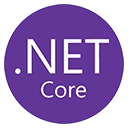ASP.NET Core continues to evolve as a leading framework for building modern web applications. Its open-source nature, cross-platform capabilities, and robust performance make it a preferred choice for developers. Here are some key trends and features that highlight the future of ASP.NET Core in the context of modern web development:
1. Cross-Platform Development
ASP.NET Core is designed to run on multiple platforms, including Windows, Linux, and macOS. This flexibility allows developers to build and deploy applications in diverse environments, enhancing accessibility and reach.
2. Microservices Architecture
With the rise of microservices, ASP.NET Core is well-suited for developing applications that consist of small, independently deployable services. This architecture promotes scalability and maintainability.
Sample Code for a Simple Microservice
public class WeatherForecast
{
public DateTime Date { get; set; }
public int TemperatureC { get; set; }
public string Summary { get; set; }
}
[ApiController]
[Route("[controller]")]
public class WeatherForecastController : ControllerBase
{
[HttpGet]
public IEnumerable<WeatherForecast> Get()
{
// Sample data generation
return Enumerable.Range(1, 5).Select(index => new WeatherForecast
{
Date = DateTime.Now.AddDays(index),
TemperatureC = Random.Shared.Next(-20, 55),
Summary = "Sample Summary"
})
.ToArray();
}
}
3. Blazor Framework
Blazor is a revolutionary framework that allows developers to build interactive web applications using C#. It enables the creation of rich client-side applications without relying heavily on JavaScript.
Sample Code for a Blazor Component
@page "/counter"
<h1>Counter</h1>
<p>Current count: @currentCount</p>
<button class="btn btn-primary" @onclick="IncrementCount">Click me</button>
@code {
private int currentCount = 0;
private void IncrementCount()
{
currentCount++;
}
}
4. Integration with Cloud Services
ASP.NET Core seamlessly integrates with cloud platforms like Azure, enabling developers to leverage cloud capabilities such as serverless computing, container orchestration, and scalable databases.
5. Enhanced Security Features
Security remains a top priority in web development. ASP.NET Core provides advanced security features, including built-in protection against common vulnerabilities, robust authentication and authorization mechanisms, and support for HTTPS.
Sample Code for Configuring Authentication
public void ConfigureServices(IServiceCollection services)
{
services.AddAuthentication(options =>
{
options.DefaultAuthenticateScheme = JwtBearerDefaults.AuthenticationScheme;
options.DefaultChallengeScheme = JwtBearerDefaults.AuthenticationScheme;
})
.AddJwtBearer(options =>
{
options.TokenValidationParameters = new TokenValidationParameters
{
ValidateIssuer = true,
ValidateAudience = true,
ValidateLifetime = true,
ValidateIssuerSigningKey = true,
ValidIssuer = "yourdomain.com",
ValidAudience = "yourdomain.com",
IssuerSigningKey = new SymmetricSecurityKey(Encoding.UTF8.GetBytes("YourSecretKey"))
};
});
}
6. Continuous Improvement and Community Support
The ASP.NET Core community is vibrant and active, contributing to continuous improvements and updates. The open-source nature of the framework encourages collaboration and innovation, ensuring that it remains relevant in the fast-paced tech landscape.
7. Conclusion
ASP.NET Core is poised for a bright future in modern web development. Its adaptability, performance, and rich feature set make it an excellent choice for developers looking to build scalable, secure, and high-performance applications. By embracing trends like microservices, Blazor, and cloud integration, ASP.NET Core will continue to thrive in the evolving digital landscape.

